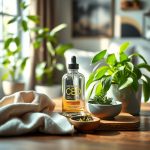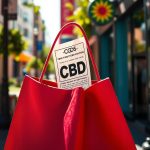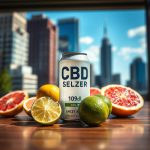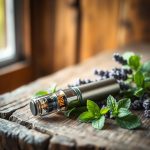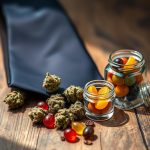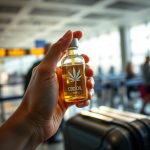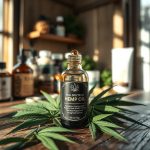THCA vs. CBD: Which Cannabinoid Is Right for Your Needs?
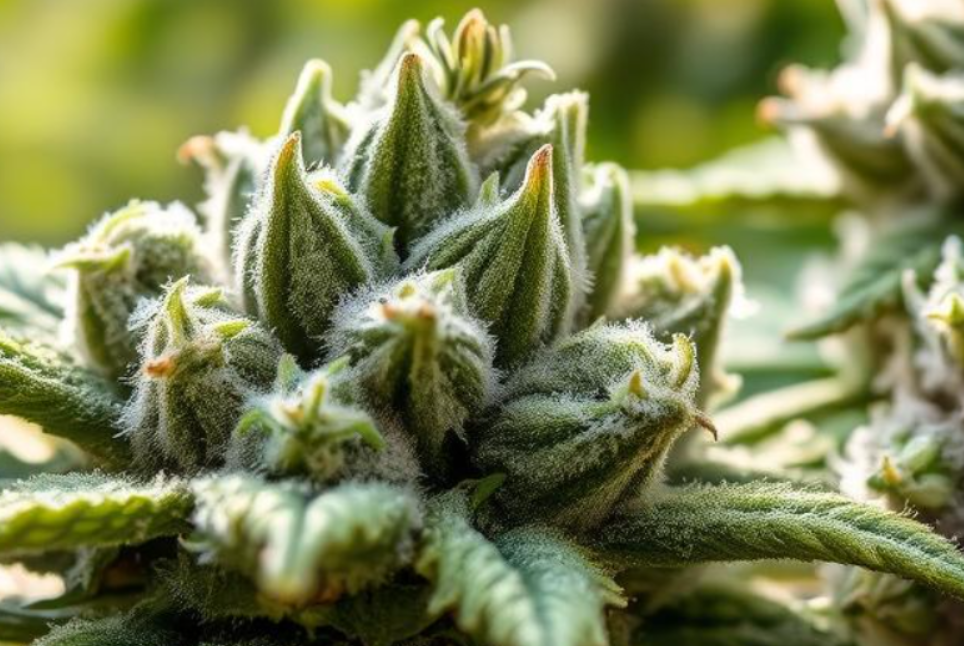
Cannabis and Cannabinoids
On the contrary, if it’s the high of the classic weed that you want, you can use THCA based items which are made for inhalation and they have active drugs as in the case of THC. They are neither legal nor illegal, but fulfill the desire for a high in most users. Although on the other hand raw THCA offers its own advantages which are non-psychoactive, current product designs are through conversion type designs. Grasping this basic contrast is the most important thing when it comes to selecting the right cannabinoids.
For people who are able to use cannabis legally, the distinctions between cannabinoids should be the focus on either ‘high’ or ‘medicinal’ products. Those wishing to purchase cannabis for recreational purposes will ask for which is better THCA vs CBD. Non-psychoactive cannabis will not be relevant here, it’s the refined cannabis products that interest them. In this age when producers and consumers alike have been informed about the potential health benefits of cannabinoids, customers are driven with healthcare aspects of the psychoactive products.
Cannabis is rich in many interesting ingredients and very often it is about THCA and CBD. Product packages often contain their names or perhaps they have been mentioned somewhere online but getting the difference between the two is important when trying to know which product best suits you. Both belong to the cannabis family, but offer quite contrasting experiences in terms of use as well as benefits. This section of the article aims at giving a detail of THCA vs CBD by comparing each one to another for the readers to understand the differences in each one’s case. One, unfortunately, is only a non-psychoactive THC raw form, while in the latter cases, high is not the height and health is the prime well-being state. While more effects, to overlap with the legal status and interaction with the body might be the second, all of them intrigue in their turn. Below is a step-by-step look at both of the cannabinoids and an attempt to uncover the myths associated with them.
Tetrahydrocannabinolic Acid (THCA) – What Is It?
Tetrahydrocannabinolic acid, abbreviated as THCA, is a substance in cannabis that does not cause a ‘high’, that is found in plants known as cannabis in their pure or undried forms. Think of it as the precursor to THC (delta 9 tetrahydrocannabinol or THC), which is the most well-known substance for causing a “high” as a result of smoking marijuana. When considered in isolation, THCA is a completely different molecular structure, and somewhat ‘since THCA is not responsible for any high THCA does not attach to our brain cells CB1 receptors’. Therefore, many if not all juices made from raw cannabis leaves contain THCA. Instead, its heat treatment renders magic in a process referred to as decarboxylation. In this process, look at it as “fixing” the problem by “boiling” the herb. From smoking, vaporizers, and cooking, the heat transforms THCA into THC and therein lies its transformation and enlightenment, so to say. This is one of the main subjects of the THCA vs CBD conflict.
Mechanism of THCA in the Body
As the raw THCA is not psychoactive, its presumed advantages are arguments owing to the triggers existing in the endocannabinoid system (ECS) of the body. ECS is a system comprising a range of receptors modulating things like emotion, sleep, hunger, and even irritation. There have not been enough studies conducted to show effects of THCA on its own or pathways of conversion to THC; however, the evidence exists that such THCA may have inflammatory and protective properties within a nervous system.
Can Vaping Cannabidiol (CBD) Oil Get You High?
As everyone knows, cannabidiol is commonly referred to as CBD and is a class of cannabinoids existing in the cannabis plant. Though it contrasted to THCA is not associated with psychotropic effect meaning one won’t experience anything irrespective of an accompanied boiling CBD or not. Most of the time, it is extracted from the hemp plant since this is a cannabis variety which is lawfully described as that with 0.3% THC or less by dry weight. Such separation is vital to its acceptance in society within most regions of the world.
CBD as it is has skyrocketed its popularity over the last decade. It is virtually in everything: oil, tinctures, lotion, gummy, drinks, etc. The reason behind this is the fact that, unlike other therapeutic alternatives, it does not get the users high. Appearance of CBD as a therapeutic compound is preferred as one does not experience any high but rather prefers the medicinal help. When it comes to THCA vs CBD, it is the non-psychotropic nature of CBD that is pertinent.
What is the mechanism of action of CBD?
The mechanism of action of CBD is different from that of THC which is the primary active component of marijuana. Unlike THC, CB1 and CB2 receptors are not given direct binding by the CBD. Instead, it has been said that CBD acts indirectly. It is postulated that it reduces the degradation of the existing cannabinoids which allows them to work for a longer duration. It also exerts some action on other than cognitive receptors such as vanilloid and serotonergic receptors, probably explaining why it is said to modulate so many different kinds of emotions and pain.
Comparing the Key Factors: THCA versus CBD
Having a crow’s-eye view of the major senses in which these two cannabinoids diverge is necessary. The argument with regard to THCA vs CBD is, most times, in respect to a few factors – psychoactivity, legal aspects, and principal applications. Let’s take a glance at each one of these differences for ease of convenience.
| Aspect | THCA | CBD |
|---|---|---|
| Psychoactivity | It does not cause any psychoactive effect in its natural form. Converts into psychoactive THC upon heating. | This is totally devoid of the psychoactive properties. |
| Main Source | Freshly harvested cannabis plants such as marijuana and hemp. | Hemp plant, is mostly used for this purpose. |
| Federal USA Legal Status | It is complicated. Sold occasionally as a hemp product under the 2018 Farm Bill, but once being turned into THC, it raises concern. | Subject to hemp where its plant has less than 0.3% of THC content. |
| Body Interaction | The compound must first be converted into THC before it is capable of effective interaction with CB1 receptors. | Activates the ECS modulation indirectly. |
| Does This Substance Appear in Drug Tests? | Yes. Although it is not in its real form. As soon as it is burnt or vaped, it transforms into THC, which is positive for the aforementioned drug tests. | It is impossible, and if not almost impossible, other than the rare cases where the allowable levels of THC are found in the substance, most especially in its full CBD spectrum. |
The Deciding Factor in Regard to Psychoactive Effects
The main differentiating aspect in the THCA vs CBD analysis is what happens in the brain. In case the aim is to keep away from any kind of mind-bending effects, CBD will do the trick. It is non-psychoactive hence no one gets high hence helpful in people wanting to stop their overactive mind without interfering with any sensations of pleasure.
On the other hand, the derivatives of THCA are not that simple. It does not cause any high when taken in its raw form, for example in a self-prepared smoothie. Whilst most THCA product propositions such as ‘THCA flower’ or ‘Vaporisers’ that offset heating or combustion, in reality, it does convert to delta 9 THC – the main ingredient in weed that is known to make users high. By implication, smoking or vaping THCA flower will give the same effect as smoking regular marijuana.
This is a critical difference. Most consumers consider THCA as a safe, ‘legal’ substitute for THC though it essentially is THC that they are consuming. For those who are interested in the popular effects of cannabis, THCA is best consumed heated. If there’s a need not to, however, CBD will do the trick.
Benefits and Uses
Research is being conducted on both THCA and CBD as they have various potential health benefits. However, at present, these substances are not approved by the FDA for treatment of the majority of conditions, which is why it should be remembered that such research continues to expand. Although it is too early, some evidence from research and reports from users suggest that they carry some beneficial effects.
THCA’s Benefits in Question
Despite the common discussion about the change of THCA to THC, there is rising concern about the cannabinoid in its physical state. Currently, there are some core areas of focus:
- Anti-inflammatory mechanisms. The same report shows that milder treatment with this THCA offers less or no help to patients with inflammatory arthritis and lupus.
- Brain preservation: this is as some studies show that THCA may help in preventing age-associated or neurodegenerative disease brain cell destruction.
- Anti-emetic Properties: Similar to THC, THCA possesses the capability of controlling nausea and improving appetite, thus, a viable solution for individuals, especially those on therapy associated with these conditions.
Raw forms of THCA, for example tinctures or raw cannabis, would be appropriate for any persons seeking these advantages without intoxication. The debate earnest on THCA vs CBD purpose in therapy is also poised to change as a new wave of findings is bound to come up.
Pros of CBD Consumption
Unlike raw THCA, the mechanism of effects of CBD has already been more extensively studied and has a clearer scope of possible effects. Its demand has gained traction in the following situations:
- Relief of Anxiety and Stress: A number of users have reported that when they consume CBD, they feel more at ease with themselves. For this reason, CBD appears to treat anxiety.
- Treatment of chronic pain: CBD could be effective against pain by acting on some brain receptors that are responsible for processing pain as well as on the receptors that help reduce inflammation.
- Better Sleep: CBD may promote better sleep in some individuals by tackling problems of pain and anxiety that often prevail in such conditions.
- Prevention of Seizures: The use of one drug – Epidiolex, based on the components derived from CBD, is included in the FDA list for the treatment of a few rare types of epilepsy.
Altered Conditions: Facing The Legal Requirements
Among the many issues that consumers face, the legal positioning of THCA vs CBD is, by far, the most controversial. One state is not the same regarding the laws of any state so it is useful to check with the law in one’s own state.
Such Restriction With CBD Is Reasonable
Following the 2018 Farm Bill, hemp as well as its derivatives became approved for national use in the United States. This law outlines hemp as cannabis that comprises not more than 0.3% of the delta 9 THC on a dry weight basis, and, provided a CBD containing product is made from such hemp, it will be permissible under federal law. In some states, however, there are certain limitations for the use of CBD products, and therefore it is not allowed in every place.
Such Restriction With THCA Unjustified
There is a little sticky situation with THCA. It should be noted that the 2018 Farm Bill makes specific mention of the maximum permissible level of delta 9 THC, but there is no mention of THCA. As a result, it has created an opportunity for producers to cultivate and market cannabis flowers which are high in THCA and very low in delta 9 THC (less than the allowed 0.3 percent). These products are usually called “THCA hemp flowers” and technically fall under the definition of legal hemp under the Farm Bill.
Notwithstanding, it is a different case if you start cooking this marijuana, since then THCA turns into delta 9 THC. This delta 9 THC is federally classified as a controlled drug, Schedule I. Nonetheless, there is a possibility that states may enact the so-called “total THC” legislation prohibiting THCA/THC products. Such states have banned the sale of high THCA products. This complication in legislation constitutes one of the most significant reasons for the THCA vs CBD debate.
Availability of Product and its Use
The consumption of THCA and CBD is not similar simply because each has different properties and uses.
Widely Used Forms of CBD
As a result of its high-level functionality, CBD is imbedded in a good number of products. It can appear in the following forms:
- Oils and Tinctures: Use them sublingual (under the tongue) to increase absorption rates.
- Gummies and Edibles: Hassle-free and delicious way of taking the required dosage.
- Capsules and Pills: Perfect for people who would want a conventional supplement option.
- Topicals and Creams: Administered to the skin to relieve pain or inflammation on the spot.
- Vape Products: For immediate effects, although vaping as a whole is still being researched for its long-term health hazards.
THCA Products in the Market
Products in the category of THCA are relatively niche and geared for users intending to consume THC after conversion.
- THCA Flower: These are dry flowers that have a similar look and smell as the normal cannabis flower. The purpose is to smoke or vaporize.
- Vape Cartridges: High THCA percentage in, vaporized through, a cartridge of a vape pen.
- Concentrates and Dabs: Super strong substances such as diamonds or rosin that can be put in extreme heat temperatures and vaped.
- Raw Tinctures: A very rare commodity slightly redefined for the user who wishes to enjoy THCA in its unheated form.
The decision about THCA vs CBD products boils down to what you are looking to achieve from it. Is it a health boost or simply to get high for leisure?
Questions Corner
Is THCA more powerful than CBD?
It depends on what it is you are trying to classify as stronger. If it is an intoxicating stronger that you are looking for then heated THCA will never be compared to CBD because it will change into THC and give a desired high while there is no high from CBD. In terms of the preventive use of the raw form, that is THCA, and CBD, there are no clear answers and it is rather case specific than blanket. The potent nature of both of them contributes more in such researches.
Does smoking THC make you test positive for drugs?
Certainly, there is a high probability. Basic drug tests usually do not distinguish between THC that has been ingested and THC that has been exhaled after THCA has been converted into THC. Once you take vaporizer or smoked THCA, the tetrahydrocannabinol gets broken down and that is what is mostly expected in the drug screening exercise. Eating too much THCA may also return a positive result, although it is not clear-cut.
Is it possible to consume both THCA and CBD?
Yes, they can. Multiple cannabinoids’ consumption has been slowly coming out as a concept in a term known as ‘entourage effect.’ It is purposed that cannabinoid and terpene (cannabis has it) played a role in enhancing their effects in consistencies. Dangerous side effects need not be worried for the user can take CBD along with THC (of course derived from THCA) to soften the buzz.
Does THCA have any consequences?
THCA, on the other hand, once it is applied the heat to the molecule; gets converted into THC, a psychoactive cannabinoid that also has the traditional effects of marijuana. This means there will be a high risk of driving under the influence, anxiety, and also short-term memory lapses with significant amounts of THCA. Whether eating or drinking raw THCA is safe is an area with even fewer studies conducted – it appears to be tolerated quite well in the end. With all cannabinoid-based products; it is always advisable to go for the smallest initial dose and ensure to purchase from dependably well-presented brands that offer comprehensive lab grooming.
Conclusion
On the THCA vs CBD debate between these two options, what is your purpose and goal? Expectation will depend on how a specific individual chooses to benefit and where their preference would alter their selection. For instance, should one be interested in the possibility of eradicating stress pain or improving sleep without particularly altering normal mental functioning, one shall easily choose a natural therapeutic remedy; which is CBD. It is non-psychoactive and has a federal legal status when sourced from hemp making it an easy way for most people to start where cannabis is concerned.
